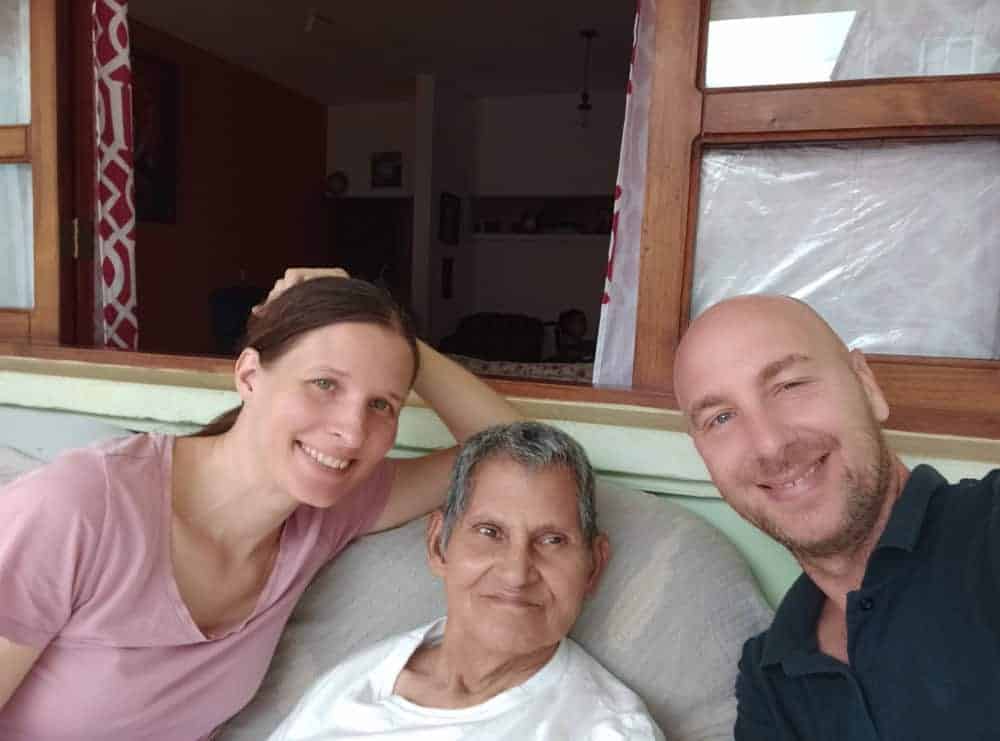Every community we’ve lived and worked in – and there are over 25 now – has its own story and character. Each has its quirks, personality, and rhythm.
Some of you may know the Ark community. It has a presence in Slovenia, and perhaps you learned about it through a presentation. Or you might know of it from when Silva and I lived with people with mental disabilities in Ark houses in Rome and Lithuania.

The Ark’s Origins
Jean Vanier founded the Ark community in 1964. He bought a small house in the French village of Trosly-Breuil and invited Raphael and Philippe, two disabled boys, to join him in a simple, dignified life. He called it l’Arche (the Arc), inspired by the biblical story of Noah.
Following Vanier’s example, new houses opened, and people joined to live alongside those with disabilities – much like any family. They shared daily tasks, work, leisure, and holidays.

Today, nearly sixty years later, there are over 154 Ark communities worldwide, with more than 5,000 members. While they operate similarly, cultural differences make each one unique.
Inclusion at the Core
All Ark communities prioritize the person with a disability. This focus transcends any differences that might divide assistants and volunteers – race, culture, religion, or politics.
My experiences in Slovenia, Bologna, Rome, and Lithuania all confirm that the Ark is a place where differences, prejudices, and facades fade away.

People with disabilities show us how to step beyond self-imposed limits and the walls we build against others. Living in such a community sparks a process of inner liberation.
Silva and I have begun a new chapter, still with the Ark, but far from Europe – across the ocean in Central America. Ark communities exist in Mexico, Guatemala, the Dominican Republic, and Honduras, where we now live.
Nadine Tokar – A Founder in Honduras
Nadine Tokar, a French woman who lived at the Ark in Trosly, founded Honduras’s Ark with Jean Vanier’s support. Her story of how an inner calling led her to Honduras is incredible, and I might share that later.

There are two Ark communities in Honduras. One is in the capital, Tegucigalpa, and the other is in Choluteca, near the Pacific coast. Even though they’re 140 kilometers apart, the two communities are closely connected.
The Suyapa Pilgrimage Center
The Ark in Tegucigalpa is near Honduras’s most famous pilgrimage site – the Basilica of the Virgin of Suyapa. The district is also called Suyapa.

The sanctuary is surrounded by a beautiful park, and the area includes smaller churches and chapels. Crowds come here from all over Honduras, especially during major church holidays. The area is considered poor, with very modest housing nearby.
The Ark’s Facilities
Silva and I live in an Ark-owned house with eight other residents with disabilities and a few assistants. The diocese donated the property.

Nearby, the Ark has workshops where residents with disabilities work, along with offices for Denia Hernandez, who oversees the Tegucigalpa community, and her assistant, Gustavo Pérez (who picked us up from the airport).
The community welcomed us warmly. Since we didn’t immediately start work, we had time to explore the large house and its surroundings, get to know the workshops and other assistants, and most importantly, the individuals the work centers around.
The property and the house are both quite spacious. We have a cozy room at the end of a hallway that includes rooms for other assistants and residents (usually shared), an office, medical supplies, bathrooms, and a laundry area.

Water Challenges
After settling in, we saw some of the serious challenges this dynamic community faces. Water shortages are a frequent problem. Honduras’s climate and an uneven water system across the city create major supply issues.

Wealthier districts (which exist even in this poor country) have more reliable water access and can afford storage containers.
Our district only gets water deliveries twice a month. A full tank should last two weeks, but that’s for smaller households. Our water needs are high due to laundry and hygiene for our residents.
This means we must conserve carefully when the water level drops. Laundry only happens when a new supply arrives, so dirty clothes might pile up for two weeks.
Financial Struggles
Money is another constant worry for Denia and the Ark leadership. The International Ark organization in France covers most employee salaries, but not enough, sometimes leaving people unpaid for months. Long-term donors provide some funds, as does the sale of items made in the workshop.

Right now, the community is really struggling financially. They can’t cover all their expenses, including food.
Twice a month, they buy low-cost, pre-packaged food from the Food Bank, without being able to choose the items. Sometimes they get only basics; at better times, they might also receive fruits and vegetables.

Anything else the community needs must be purchased at higher prices in stores. They rely on discounts and the local market to stretch their budget.
I’ll write more about all this later. We feel good living here, and it’s wonderful to again experience that sense of belonging and the direct connection to helping others. I hope everyone gets to feel that way!



